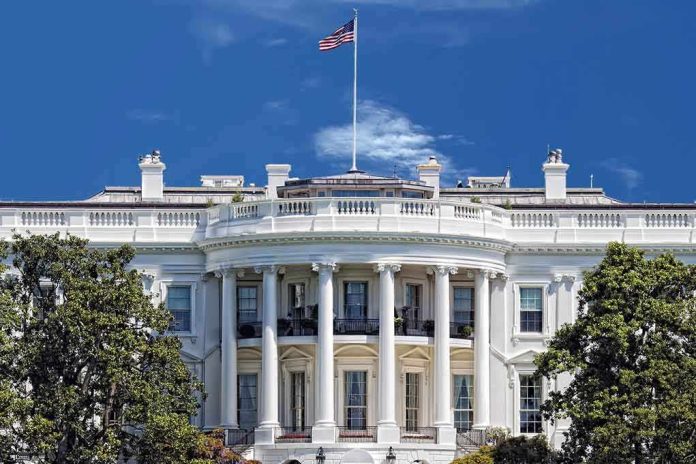
A handshake in Washington just pledged nearly a trillion dollars to America’s future, and the world may never look at U.S.-Saudi relations the same way again.
Story Snapshot
- Saudi Crown Prince Mohammed bin Salman (MBS) pledged almost $1 trillion in new investments to the United States.
- The announcement capped a high-profile White House visit with President Donald Trump.
- Military pageantry and strategic signaling dominated the meeting, blending spectacle with substance.
- This investment surge signals a new chapter in U.S.-Saudi economic and political ties.
A Meeting of Power and Pageantry
Washington’s corridors of power witnessed a rare convergence: the future king of Saudi Arabia, Mohammed bin Salman, wrapped in the regalia of state, shaking hands with President Trump under the White House lights. The world’s cameras captured not just ceremonial splendor but a pointed message—Saudi Arabia, flush with oil wealth and ambition, is going big on its American bet. The nearly $1 trillion investment pledge isn’t just cash; it’s leverage, intent, and a calculated maneuver to re-anchor Riyadh at the center of U.S. economic strategy.
Unlike the transactional deals of yesterday, this new commitment is rooted in a sweeping vision: Saudi money will flow into American infrastructure, technology, and manufacturing. For the Trump administration, starved for massive headline wins, the optics could hardly be better. MBS, meanwhile, is no stranger to spectacle. He understands that every dollar pledged is a down payment on influence—from Silicon Valley to Wall Street, and from the Pentagon to Pennsylvania’s factories.
New Money, Old Ties: The Roots of a Strategic Gamble
Saudi-American relations have long been defined by oil, arms, and discreet diplomacy. This week’s announcement signals a pivot from mere petro-dollar politics to a deep, diversified economic alliance. MBS is pushing his nation toward Vision 2030, a plan to modernize Saudi Arabia’s economy and reduce its reliance on oil. U.S. partnerships are central to this transformation. By almost doubling Riyadh’s planned U.S. investments, MBS positions Saudi Arabia as an indispensable partner in American job creation and technological innovation.
Trump’s administration, for its part, welcomes the cash infusion as proof that “America First” can coexist with—and profit from—global alliances. The spectacle of military bands and billion-dollar handshakes is not just for show; it’s a calculated reminder that the world’s oldest energy alliance is not just enduring but evolving. Critics, however, warn that economic entanglement with authoritarian regimes can cloud American values, raising questions about where profit ends and principle begins.
The Ripple Effect: What’s at Stake for Both Nations
For the American heartland, MBS’s pledge translates to jobs, factories, and a shot in the arm for struggling industries. Tech giants and infrastructure firms line up for their piece of the Saudi windfall, eager to court a partner with both deep pockets and global aspirations. In Riyadh, the hope is that American expertise will accelerate Saudi modernization, creating a legacy for MBS that extends far beyond oil.
Yet, the stakes reach far beyond economics. The military spectacle at the White House was more than pageantry—it was a warning shot to rivals in Tehran, Moscow, and Beijing. By cementing the U.S.-Saudi axis, both leaders sent a clear message: in a world of shifting alliances, old friendships—when fueled by nearly a trillion new dollars—can still shape the future. Whether this new era delivers lasting benefits or heightens global risks remains an open question, and both nations are now inextricably bound to the outcome.
Sources:
MBS Says Saudi Arabia Will Invest $1T in US



